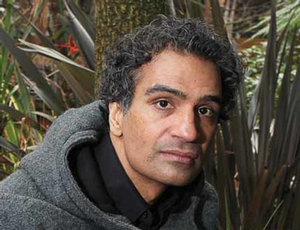
Variety reports that the recent firing of four top Los Angeles Times editors “was the result of a month of newsroom turmoil.” Paul Pringle, an investigative reporter at the paper, had filed a human resources complaint about the delay of a story about USC, which Pringle alleged was “due to cozy relations between the editors and USC officials.” Although an investigation didn’t prove Pringle’s claims, the incident prompted “additional newsroom grievances against the paper’s leadership.” Nieman Lab reflects on former editor Davan Maharaj’s time at the paper, “a remarkable run as a tightrope walker on one of the highest wires of American journalism.”
Rafia Zakaria talks to Nadeem Aslam about politics, fiction, and how the two interact in his new book, The Golden Legend. Aslam, who “did not set out to write a timely book,” says that his novel came out of his increasing frustration at the lies told about regular citizens by the powerful. “Against this reality, kindness has become a political act; to be decent has become a political act,” Aslam said. “I wanted to bring these political lies down to the level of everyday life and show that people are behaving in the opposite manner, that the idea that everyone wants to get ahead is not true of everyone or even most people.”
Mashable explains why coal company CEO Robert Murray’s lawsuit against John Oliver could be the next Gawker case. The suit is being tried in West Virginia, a state that, like Florida, does not have an anti-SLAPP law, which is aimed at preventing lawsuits that stifle free speech. “It’s a perfect recipe for a pissed off billionaire to go after someone he doesn’t like and do his best to cause financial burden,” Jason Abbruzzese writes, “even if the case doesn’t end up going the billionaire’s way.”
Anelise Chen talks to Electric Literature about sports, life, and failure in her recent book, So Many Olympic Exertions.
At The Baffler, Kyle Paoletta examines the “transformation of The New Yorker’s style from a topic of niche interest to a content-generation machine . . . of the most calculating sort.”
Adrianne Jeffries looks at the collapse of Mic, the latest website to pivot to video. Current and former employees told Jeffries that founders Chris Altchek and Jake Horowitz “seemed to embrace the idea of being an activist website without really understanding the issues,” and only as long as it was profitable. Now, the site is attempting to be more neutral, but former employees said that this has happened before. “Mic has attempted to reinvent itself as ‘real journalism’ multiple times,” Jeffries notes, “only to get spooked when traffic dropped.”